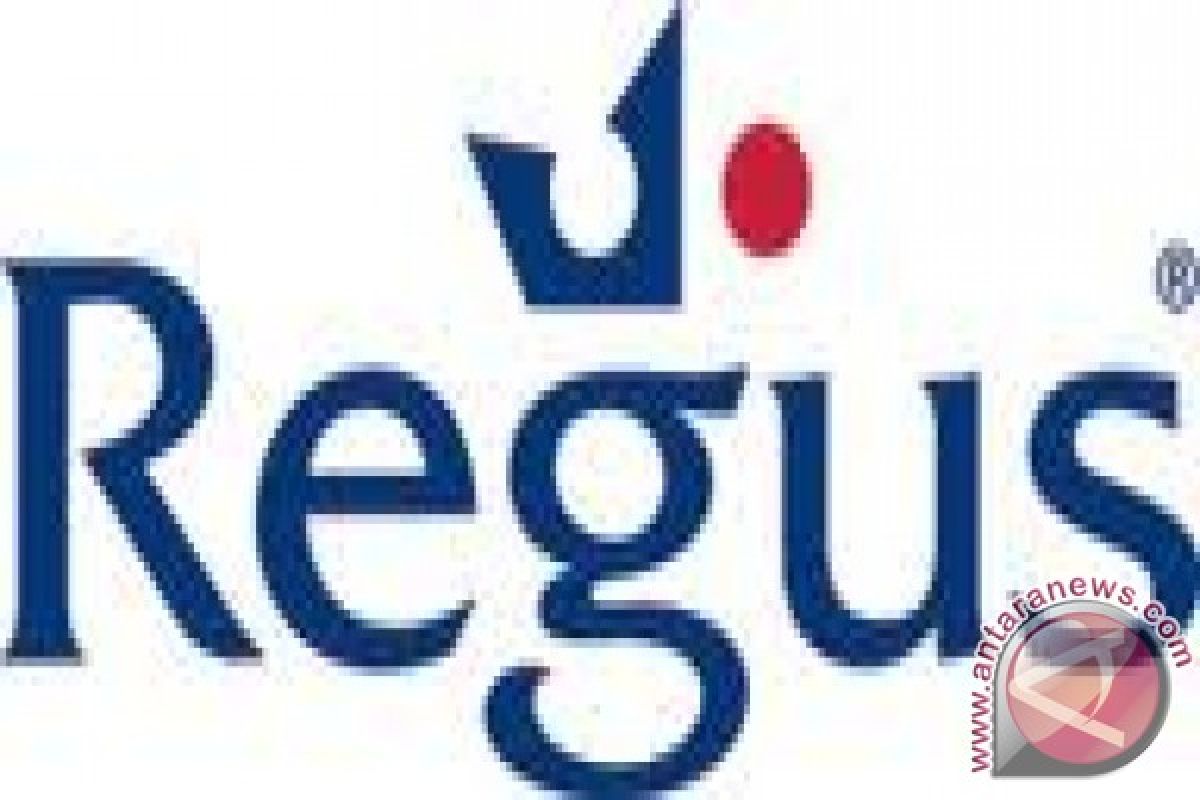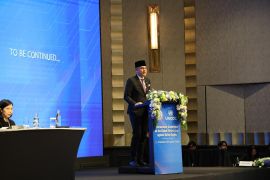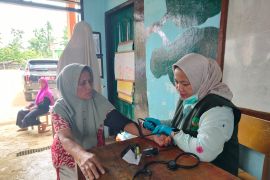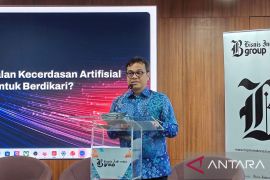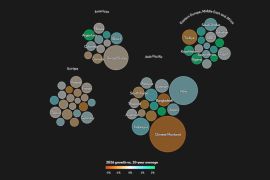Jakarta, Indonesia, Sept 26, 2013 - (ANTARA) - While the chief executive of a global internet company may recently have banned company employees from home working, new research by global workplace provider Regus shows that half the world's workforce is now productively enjoying flexible working.
The 2013 Regus Global Economic Indicator reveals that professionals who are chained to the office desk will soon be the minority. Regus' research, canvassing over 26,000 business managers across 90 countries, found that 48 per cent now work remotely for at least half their working week. In Indonesia, just under three-quarters of executives work flexibly for at least half the week (70 per cent).
Some chief executives may worry about motivating and managing staff at a distance. But in the Regus survey, 78 per cent of Indonesian respondents (55 per cent globally) said they believed effective management of remote workers was perfectly achievable, and a significant portion of businesses are bringing increasing rigour to managing their remote staff.
Commenting on the research, Regus CEO Mark Dixon says: "Flexible working is a winner for all concerned when the management team takes the lead. The business people we speak with tell us that trust and freedom play a key role in remote management and, once these are in place, the benefits are clear for all to see: greater productivity, improved staff retention and lower operating costs."
Regus' survey shows that 74 per cent of companies in Indonesia (much higher than the 37 per cent global figure) use specific efficiency-monitoring reporting systems, while 70 per cent of remote managers use video calls to communicate with their teams (43 per cent globally).
US health insurer Aetna, a thought leader in the field, has added training courses to the mix so remote workers and their managers can be brought up to speed on effective flexible working methods. Of Aetna's 35,000 employees, 14,500 do not have a desk.(1)
The flexible work experience can have a particular value for younger workers. Forty-four per cent of respondents in Indonesia believe that junior employees become more responsible through remote working.
In addition, there is a perception that flexible working is shaping a new kind of interaction between line managers and their team members. Seventy-eight per cent of respondents think that remote management helps maintain a more professional relationship.
Key findings in Indonesia:
- 70% work remotely for half the week or more
- 78% say that seamless remote management is an achievable goal, but only if managers undergo special training
- 63% consider trust an important issue
- 74% of companies use reporting systems to monitor mobile employee efficiency
- 70% use video communication between managers and employees
- 78% believe remote management helps maintain a more professional relationship
(1) Reuters. com, In telecommuting debate, Aetna sticks by big at-home workforce, 1st March 2013
About Regus
Regus is the world's largest provider of flexible workplaces, with products and services ranging from fully equipped offices to professional meeting rooms, business lounges and the world's largest network of video communication studios. Regus enables people to work their way, whether it's from home, on the road or from an office. Customers such as Google, GlaxoSmithKline, and Nokia join hundreds of thousands of growing small and medium businesses that benefit from outsourcing their office and workplace needs to Regus, allowing them to focus on their core activities.
More than 1.3 million customers a day benefit from Regus facilities spread across a global footprint of more than 1,500 locations in 600 cities and 100 countries, which allow individuals and companies to work wherever, however and whenever they want to. Regus was founded in Brussels, Belgium in 1989, is headquartered in Luxembourg and listed on the London Stock Exchange. For more information please visit www.regus.com.
Contact:
Esmond Yan
Priority Consultants
esmond.yan@priorityconsultants.com
Editor: PR Wire
Copyright © ANTARA 2013
